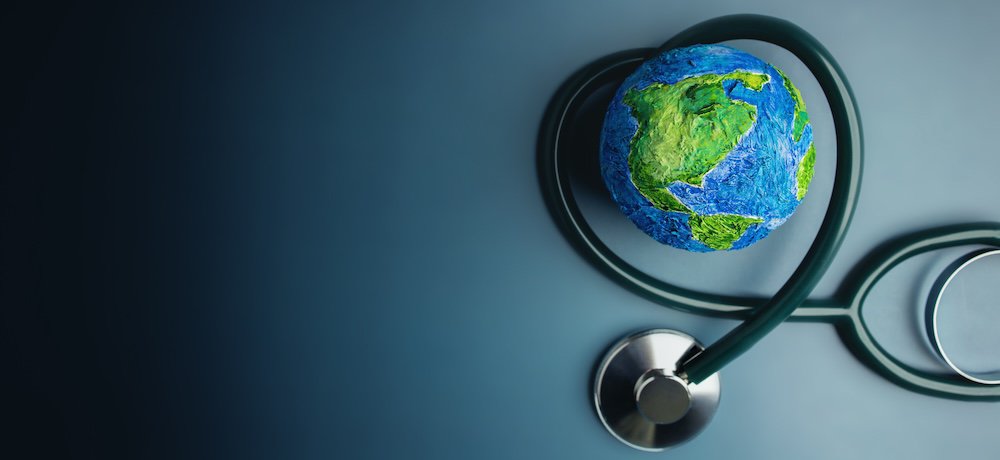AIMPLAS supports companies in transition to the circular economy
AIMPLAS supports companies in transition to the circular economy Medical Plastics News


The Plastics Technology Centre’s Progress in the Circular Economy

Introduction
The Plastics Technology Centre, also known as AIMPLAS, has significantly increased its efforts in promoting the circular economy. In 2023, AIMPLAS presented 206 projects, provided over 1,100 technological services, and participated in 76 training and conference activities. These initiatives align with the Sustainable Development Goals (SDGs) set by the United Nations.
The Importance of the Circular Economy
The circular economy poses a crucial challenge for the plastics sector. Companies are transitioning towards more sustainable business models that consider both economic and environmental factors. This transformation involves reviewing processes, services, and products across the entire value chain while avoiding greenwashing practices.
In 2023, AIMPLAS collaborated with more than 1,500 companies to promote actions related to the circular economy.
R&D Projects in 2023
A total of 206 R&D projects focused on the circular economy were presented in 2023, representing a 10% increase compared to the previous year. These projects encompassed various areas, including:
- Ecodesign
- Incorporation of bio-based, recycled, recyclable, biodegradable, and compostable materials
- Development of new business models based on repair and reuse
- Improvements in waste collection, management, and separation systems
- Optimization of recycling processes to obtain high-quality materials
- Obtaining plastics from agri-food waste
- Recovery through biodegradation and composting processes
Technological Services and Training
AIMPLAS provided more than 1,100 technological services related to the circular economy to over 600 companies in 2023. The Centre’s laboratory services, which include accredited tests for the plastics industry, allowed companies to verify the sustainability of their products and obtain ecolabels. AIMPLAS also expanded its biodegradation capacities and obtained certifications in Europe and the United States.
In terms of training, AIMPLAS organized 76 activities and conferences attended by more than 1,500 professionals from around 900 companies. These events covered topics such as the circular economy, biopolymers, sustainable composites, recycling, and more.
Infrastructure and Environmental Sustainability
AIMPLAS invested in new infrastructure, including expanded facilities for synthesis, transformation, recycling, and biodegradation pilot plants. These investments were made while considering environmental impacts and aligning with the Centre’s emissions reduction plan. AIMPLAS reduced its emissions by 83% since 2019, leading to the acquisition of the REDUZCO seal from the Ministry for Ecological Transition and the Demographic Challenge.
Recognition and Awards
AIMPLAS received several awards and recognitions for its activities in the circular economy. These include the Retina ECO 2023 Award, the LCBA Colombia 2023 Low Carbon and Circular Economy Business Seal, and the go!ODS Award in the Zero Hunger category.
Future Plans
In 2024, AIMPLAS aims to enhance its support for companies in areas such as ecodesign, preventing greenwashing, environmental impact assessment, digital product passports, reuse and repair models, and new product certifications. Additionally, AIMPLAS will implement testing of caps attached to bottles, as it will become mandatory for containers with a capacity of less than three liters starting in July 2024.
SDGs, Targets, and Indicators Analysis
1. Which SDGs are addressed or connected to the issues highlighted in the article?
- SDG 9: Industry, Innovation, and Infrastructure
- SDG 12: Responsible Consumption and Production
- SDG 13: Climate Action
- SDG 14: Life Below Water
- SDG 15: Life on Land
The article discusses AIMPLAS’ efforts in the circular economy, which is connected to SDG 9 as it focuses on promoting sustainable industrialization and fostering innovation. SDG 12 is also relevant as it emphasizes responsible consumption and production, which aligns with AIMPLAS’ goal of transitioning to a more sustainable business model. Additionally, the article mentions AIMPLAS’ emissions reduction plan, which contributes to SDG 13’s target of combating climate change. The development of new business models based on repair and reuse mentioned in the article is connected to SDG 14’s target of conserving and sustainably using the oceans, seas, and marine resources. Lastly, AIMPLAS’ work on waste management and recovery processes aligns with SDG 15’s target of protecting, restoring, and promoting sustainable use of terrestrial ecosystems.
2. What specific targets under those SDGs can be identified based on the article’s content?
- SDG 9.4: Upgrade infrastructure and retrofit industries to make them sustainable
- SDG 12.2: Achieve sustainable management and efficient use of natural resources
- SDG 13.2: Integrate climate change measures into national policies, strategies, and planning
- SDG 14.1: Prevent and significantly reduce marine pollution of all kinds
- SDG 15.3: Combat desertification, restore degraded land, and soil
Based on the article’s content, AIMPLAS’ efforts align with SDG 9.4 by focusing on upgrading infrastructure and facilities to meet sustainability criteria. The organization’s work in the circular economy contributes to achieving SDG 12.2 by promoting sustainable management and efficient use of natural resources. AIMPLAS’ emissions reduction plan supports SDG 13.2 by integrating climate change measures into their operations. The development of new business models based on repair and reuse addresses SDG 14.1’s target of preventing marine pollution. Lastly, AIMPLAS’ initiatives in waste management and recovery contribute to SDG 15.3’s goal of combating desertification and restoring degraded land.
3. Are there any indicators mentioned or implied in the article that can be used to measure progress towards the identified targets?
- Number of projects related to the circular economy presented
- Number of technological services provided to companies
- Number of training activities and conferences held
- Increase in turnover in consultancy and laboratory services
- Accreditations obtained for biodegradation capacities and certifications
- Reduction in emissions percentage since 2019
The article mentions several indicators that can be used to measure progress towards the identified targets. The number of projects related to the circular economy presented can indicate progress towards SDG 9.4 and SDG 12.2. The number of technological services provided to companies reflects AIMPLAS’ efforts in supporting sustainable industrialization and responsible consumption and production. The number of training activities and conferences held demonstrates AIMPLAS’ commitment to knowledge-sharing and capacity-building. The increase in turnover in consultancy and laboratory services indicates the organization’s growth in providing sustainable solutions. The accreditations obtained for biodegradation capacities and certifications reflect progress towards SDG 14.1 and SDG 15.3. Lastly, the reduction in emissions percentage since 2019 measures AIMPLAS’ contribution to SDG 13.2.
4. Table: SDGs, Targets, and Indicators
| SDGs | Targets | Indicators |
|---|---|---|
| SDG 9: Industry, Innovation, and Infrastructure | 9.4: Upgrade infrastructure and retrofit industries to make them sustainable | – Number of projects related to the circular economy presented – Number of technological services provided to companies |
| SDG 12: Responsible Consumption and Production | 12.2: Achieve sustainable management and efficient use of natural resources | – Number of projects related to the circular economy presented – Number of technological services provided to companies |
| SDG 13: Climate Action | 13.2: Integrate climate change measures into national policies, strategies, and planning | – Reduction in emissions percentage since 2019 |
| SDG 14: Life Below Water | 14.1: Prevent and significantly reduce marine pollution of all kinds | – Number of projects related to the circular economy presented – Accreditations obtained for biodegradation capacities and certifications |
| SDG 15: Life on Land | 15.3: Combat desertification, restore degraded land, and soil | – Number of projects related to the circular economy presented – Accreditations obtained for biodegradation capacities and certifications |
Behold! This splendid article springs forth from the wellspring of knowledge, shaped by a wondrous proprietary AI technology that delved into a vast ocean of data, illuminating the path towards the Sustainable Development Goals. Remember that all rights are reserved by SDG Investors LLC, empowering us to champion progress together.
Source: medicalplasticsnews.com

Join us, as fellow seekers of change, on a transformative journey at https://sdgtalks.ai/welcome, where you can become a member and actively contribute to shaping a brighter future.







